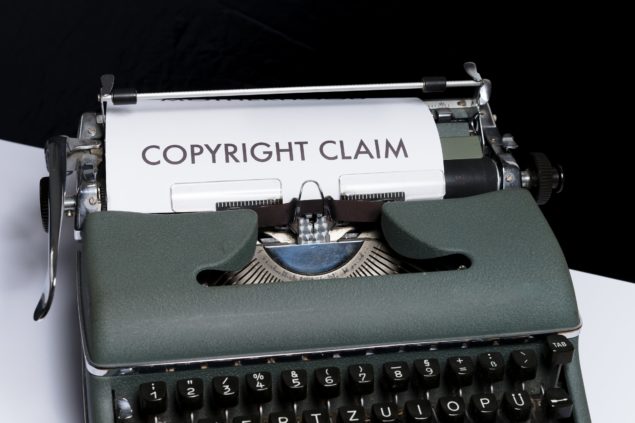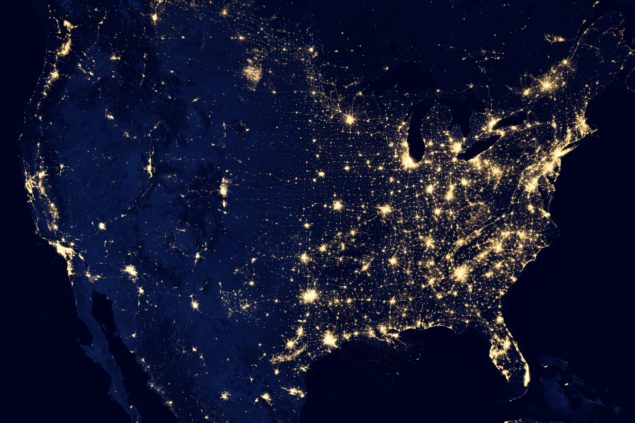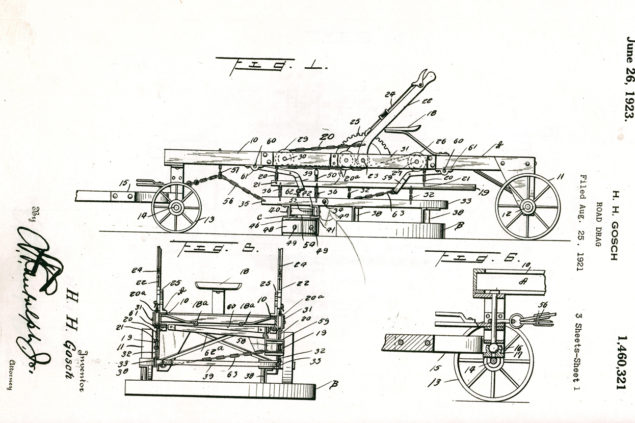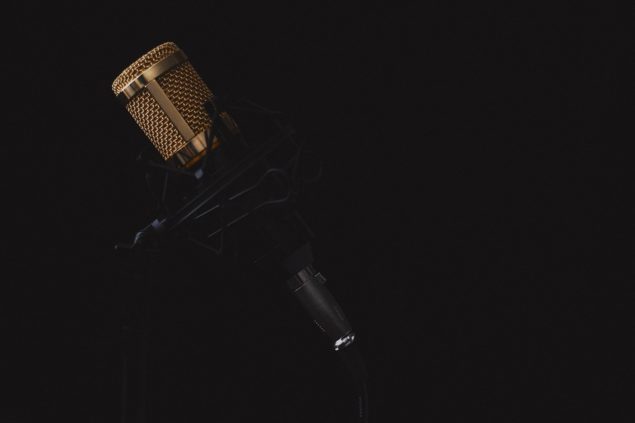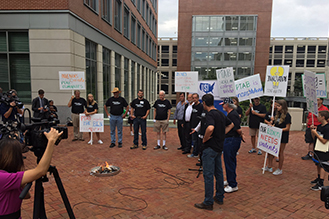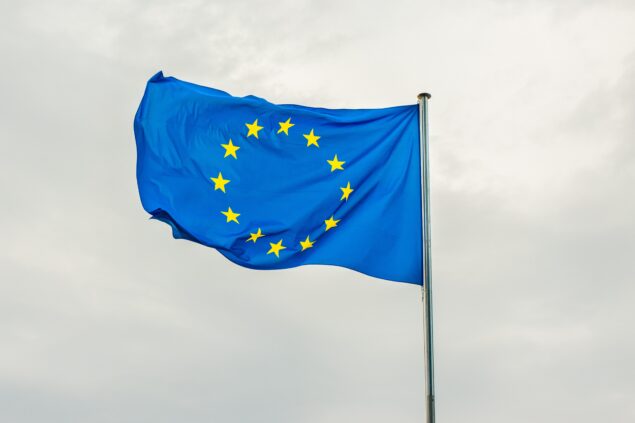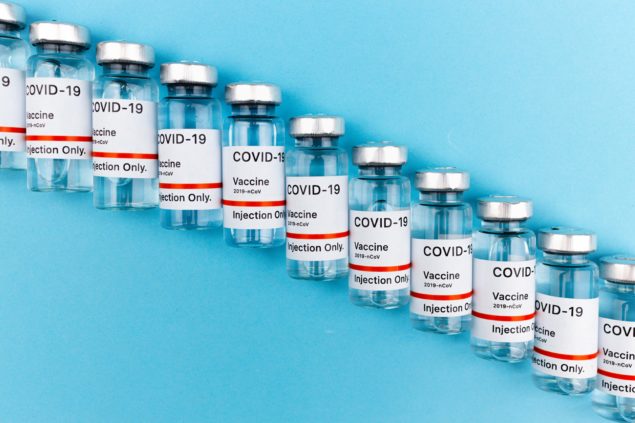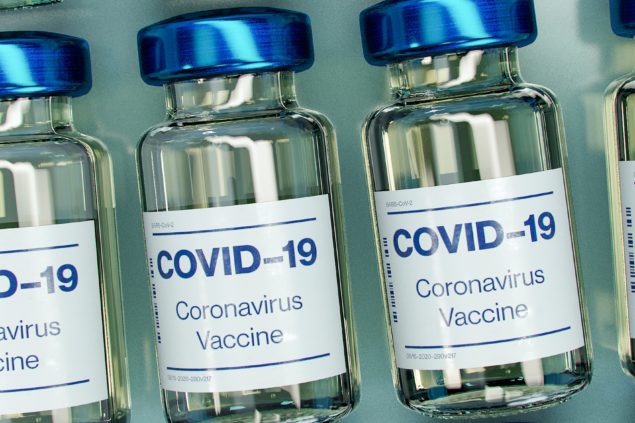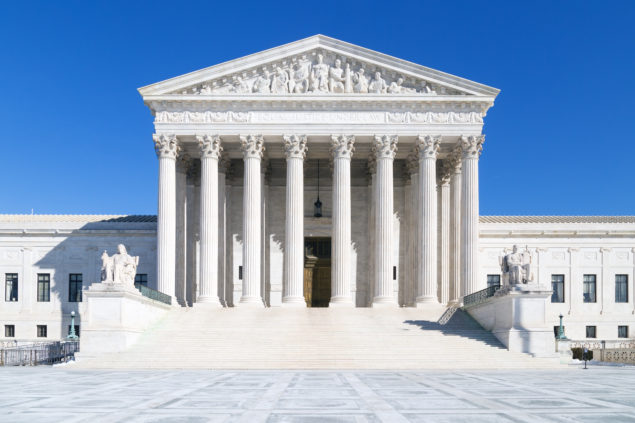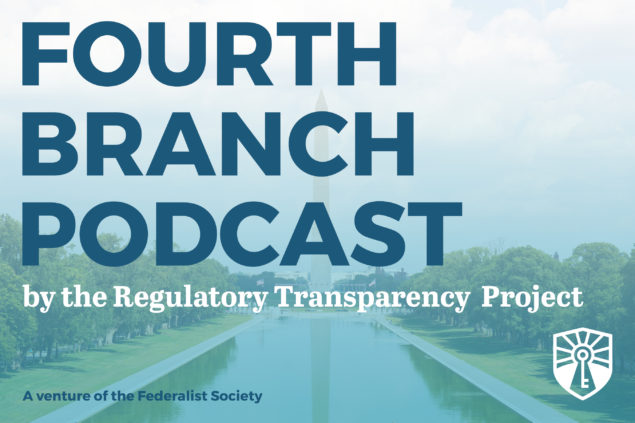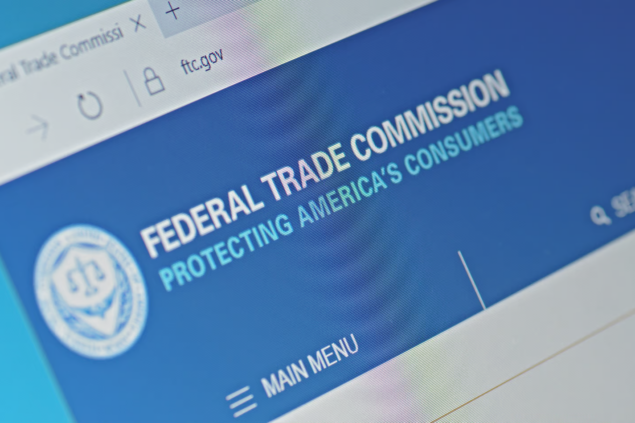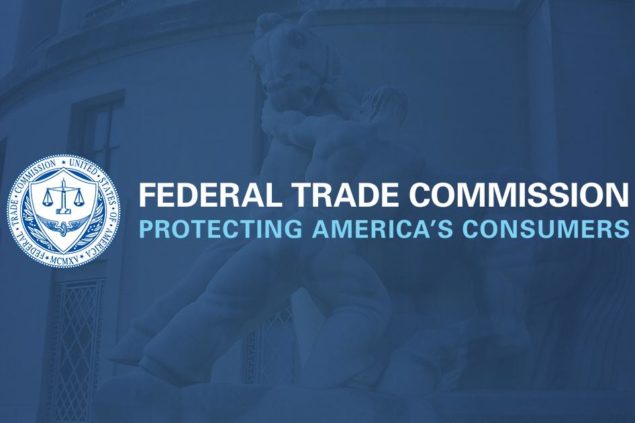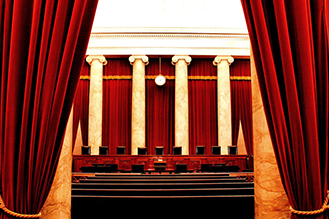Intellectual Property
Topics
No one knows when the next great inventor or songwriter will appear. What is certain is that modern inventions will continue to need patent protection and that copyright protections will be required for the artistic achievements of the generations to come. How can regulatory policy incentivize or disincentivize new and novel creations?
State Mandates for Digital Book Licenses to Libraries are Unconstitutional and Undermine the Free Market
The authors of this paper assert that the proposed compulsory licensing by states threatens the well-founded principle of a uniform federal copyright law established by the U.S. Constitution and its designation of Congress as the body responsible for securing to authors their exclusive rights.
Read this paperCOVID Vaccine IP Waiver: A Pathway to Fewer, Not More, Vaccines
In this paper, the authors examine a proposal to exempt COVID-19 vaccines and treatments from international intellectual property protections, and argue that such an exemption is unnecessary and could threaten innovation.
Read this paperPutting Innovation First: The “New Madison Approach” to Patent Licensing and Antitrust
In this paper, the authors advocate for an approach to antitrust and intellectual property that “appropriately protect[s] the legitimate property rights of patent holders and [shields] their unilateral patent licensing decisions from unwarranted antitrust attack.”
Read this paperHolding States Accountable for Copyright Piracy
In this paper, the authors lay out how copyright law and state sovereign immunity have recently come into conflict, explain why that conflict matters, and propose a legislative solution.
Read this paperAligning Intellectual Property, Antitrust, and National Security Policy
The authors argue that the U.S. must remain an active participant in 5G technological development through its antitrust and intellectual property policies to ensure the safety of the systems on which the U.S. military relies and avoid cybersecurity vulnerabilities.
Read this paperClosing the Streaming Loophole
In this paper, the authors argue that piracy poses a significant threat to the rapidly-growing legitimate online streaming industry. They contend that lawmakers must make piracy through online streaming a felony, rather than misdemeanor, in order to more effectively deter bad actors.
Read this paperPutting the Public Back In “Public Interest” in Patent Law
In this paper, the authors lay out a conception of the proper place of ‘public interest’ in patent law, and what they see as current, detrimental uses of that principle. Properly applied, the notion serves the public by promoting innovation, but improperly applied, they argue, public interest can serve to stifle progress.
Read this paperDe-Regulating the Songwriting Business
The authors of this paper argue that outdated consent decrees should be ended to take full advantage of modern technologies for the distribution of music.
Read this paperHow Antitrust Overreach is Threatening Healthcare Innovation
The authors of this paper explore the FTC’s recent antitrust actions in pharmaceutical patent litigation and argue that, while well-intentioned, these actions hamper medical innovation and constitute a net loss for consumers.
Read this paperWill Overzealous Regulators Make Your Smartphone Stupid?
The authors of this paper discuss the patent system’s integral role in a flourishing innovation economy and argue that recent actions in this system by antitrust authorities have had “a deleterious effect on high-tech innovation in the spaces of standards and patent licensing,” and on innovation in general.
Read this paperCreativity and Innovation Unchained: Why Copyright Law Must be Updated for the Digital Age by Simplifying It
The authors of this paper argue that “the basics of copyright are fully compatible with modern technology, but specific provisions enacted years ago to try to address long-gone business and technological problems are still on the books. Instead of solving yesterday’s problems, these sticky laws shackle today’s creative marketplace.”
Read this paperCrippling the Innovation Economy: Regulatory Overreach at the Patent Office
The authors of this paper argue that the PTAB has become a prime example of regulatory overreach by creating unnecessary costs for inventors and companies, and, thus, harming the innovation economy far beyond the harm of the bad patents it was created to remedy.
Read this paperTech Roundup Episode 22 – Training Artificial Intelligence & Copyright Law
Moderated by Brent Skorup, experts Timothy B. Lee, Professor Pamela Samuelson, and Kristian Stout discuss the emerging legal issues involving…
Listen to this podcastCourthouse Steps Oral Argument: Illumina v. FTC
In September, a panel of judges on the Fifth Circuit Court of Appeals heard oral argument in Illumina v. Federal…
Listen to this podcastDeep Dive Episode 260 – The EU’s Proposed Regulations of SEP Licensing and Litigation: A Solution or Setback for the Global Innovation Economy?
The European Union is considering adopting a wide-ranging regulatory regime for the licensing and litigation of standard essential patents (SEPs).
Listen to this podcastDeep Dive Episode 219 – Four Years Later, Did the “New Madison Approach” to IP and Antitrust Promote Innovation?
An expert panel debates whether “New Madison” antitrust and IP policies did more to promote innovation or to spark unnecessary litigation.
Listen to this podcastDeep Dive Episode 206 – Intellectual Property in a Pandemic: The Proposed COVID-19 WTO Waiver
An expert panel weighed the arguments on each side of the debate over the proposed COVID-19 IP waiver at the WTO.
Listen to this podcastDeep Dive Episode 193 – Arthrex: The End of Patent Exceptionalism in the Administrative State?
An expert panel discusses the Supreme Court’s Arthrex decision and the effects it may have in patent and administrative law and the innovation economy.
Listen to this podcastDeep Dive Episode 177 – Patents and Pandemics: Innovation Policy and the Patent Waiver Petition at the WTO
Experts debate the role of patents in medical care and how the US should respond to the petition submitted to the WTO to waive all intellectual property rights on drugs, vaccines, or other responses to the COVID-19 pandemic.
Listen to this podcastDeep Dive Episode 167 – Courthouse Steps Oral Argument: United States v. Arthrex Inc.
Gregory Dolin, Dmitry Karshtedt, and Kristen Osenga join us to review oral arguments in United States v. Arthrex Inc.
Listen to this podcastDeep Dive Episode 164 – How Will the Biden Administration Handle China’s Intellectual Property Practices?
Experts from across the political spectrum debate the best path forward for the new administration regarding China and intellectual property.
Listen to this podcastDeep Dive Episode 156 – Incentivizing Drug Development: Patents or Prizes?
In this live podcast, experts debate which legal rules and institutions are best-suited to promote the development and commercialization of new drugs and vaccines.
Listen to this podcastDeep Dive Episode 155 – International Reference Pricing and Negotiation: Yes or No?
Adam Mossoff and Wendell Primus join the podcast for a discussion of international reference drug pricing.
Listen to this podcastDeep Dive Episode 143 – Pandemics & Patents: Do Patents Help or Hinder Medical Innovation?
Experts George Horvath and Adam Mossoff discuss how patents can affect medical innovation, specifically in the context of COVID-19.
Listen to this podcastDeep Dive Episode 142 – The United States-China Relationship and Intellectual Property
In this live podcast, experts on intellectual property and China discuss whether China’s behaviors constitute a violation of international norms, and what, if anything, the United States should be doing about it.
Listen to this podcastDeep Dive Episode 118 – Can Patents and Bayh-Dole Fuel Innovation in the Time of COVID-19?
In this episode, experts discuss how patents, patent licensing, and the tech transfer process created by the Bayh-Dole Act might provide key legal and policy tools for companies to respond effectively to our current health crisis and crises to come.
Listen to this podcastDeep Dive Episode 104 – The Allen v. Cooper Decision, or, Blackbeard’s Revenge
This all-star panel discusses the Court’s most recent decision in the context of the evolution of the Court’s sovereign immunity jurisprudence, the policy concerns of Congress and intellectual property owners, and where we might go from here.
Listen to this podcastDeep Dive Episode 94 – FTC v. Qualcomm
In this episode, Kristen Osenga and F. Scott Kieff recap the district court’s decision, discuss the arguments likely to be made on appeal, and explore the bigger issues this case brings up for antitrust policy.
Listen to this podcastDeep Dive Episode 89 – The New DOJ-USPTO-NIST Policy Statement on Remedies for Infringement of Standard-Essential Patents
In this episode, David Jones, Kristen Osenga, and Brad Watts discuss this new interagency policy statement and its potential impacts. Adam Mossoff moderates.
Listen to this podcastDeep Dive Episode 76 – State-Sponsored Piracy? The Allen v. Cooper Case
What happens when a state agency uses without authorization copyrighted videos and pictures of Blackbeard’s famous pirate ship, the Queen Ann’s Revenge?
Listen to this podcastDeep Dive Episode 47 – The Songwriting Industry and Antitrust Consent Decrees
Kristen Osenga and Mark F. Schultz explore the antitrust consent decrees that have regulated a large part of the music business for eight decades.
Listen to this podcastDeep Dive Episode 16 – Is the Newest Part of the Copyright Act Antiquated?
Jennifer L. Pariser (Motion Picture Association), Maria Schneider (GRAMMY Award Winning Artist), and Mark Schultz (Southern Illinois University School of Law) discuss the Digital Millennium Copyright Act’s “notice and takedown system” and whether this system is either “an imperfect, but workable solution to a challenging problem” or is it “outdated and impractical?”
Listen to this podcastDeep Dive Episode 10 – Is There a “Death Squad” at the U.S. Patent Office?: Examining the Patent Trial and Appeal Board
Josh Malone (Bunch O Balloons), Kristen Osenga (University of Richmond School of Law), and Brian O’Shaughnessy (Dinsmore & Shohl) discuss the USPTO’s Patent Trial and Appeal Board.
The Debate Over Standard Essential Patents
Standardized technologies make it possible for devices and equipment to have common components so, for instance, a pair of headphones can plug into any headphone jack. These technologies are often developed through expensive and timely research so many of them are protected by standard essential patents (SEPs).
Watch this videoCourthouse Steps Oral Argument: Illumina v. FTC
In September, a panel of judges on the Fifth Circuit Court of Appeals heard oral argument in Illumina v. Federal…
Watch this videoThe EU’s Proposed Regulations of SEP Licensing and Litigation: A Solution or Setback for the Global Innovation Economy?
The European Union is considering adopting a wide-ranging regulatory regime for the licensing and litigation of standard essential patents (SEPs). This panel of experts will discuss the EU proposal and its implications for participation in standards development, patent law, commercial law, competition law and innovation policy in the global innovation economy.
Watch this videoShould the Government Limit Copyright Protection for E-Books?
In this short film, intellectual property law expert, Adam Mossoff, outlines the arguments for and against government price controls on e-books.
Watch this videoFour Years Later, Did the “New Madison Approach” to IP and Antitrust Promote Innovation?
An expert panel debates whether “New Madison” antitrust and IP policies did more to promote innovation or to spark unnecessary litigation.
Watch this videoIntellectual Property in a Pandemic: The Proposed COVID-19 WTO Waiver
An expert panel weighed the arguments on each side of the debate over the proposed COVID-19 IP waiver at the WTO.
Watch this videoCOVID-19 and IP Protections on Critical Medical Innovations
Kristen Osenga narrates this discussion of a proposal to exempt COVID-19 vaccines and treatments from international intellectual property protections.
Watch this videoArthrex: The End of Patent Exceptionalism in the Administrative State?
An expert panel discusses the Supreme Court’s Arthrex decision and the effects it may have in patent and administrative law and the innovation economy.
Watch this videoThe Library of Congress Mandatory Deposit Rule: An Outdated Burden?
Is it time to rethink the Library of Congress’s mandatory deposit rule?
Watch this videoShould Congress Close the “Streaming Loophole”?
Copyright infringement laws dictate serious penalties for digital works that have been reproduced and downloaded. However, streaming has become the new method of choice for illegal piracy. “Display and public performances” laws – which cover streaming – only carry trivial penalties. This is called the “streaming loophole.” Copyright advocates say that new laws must be passed to close the loophole, while internet freedom advocates insist that new laws could harm consumers.
Kevin Madigan is VP, Legal Policy and Copyright Counsel at the Copyright Alliance.
Watch this videoPublic Piracy of Private Property? Allen v. Cooper
The wreck of the Queen Anne’s Revenge, a ship captained by Blackbeard that sank in the early 18th century, sits underwater just off the coast of North Carolina.
Frederick Allen is the exclusive photographer and videographer of the wreck. In 2013, he found that North Carolina was using his footage on state websites without paying royalties – even though he had federal copyright protection for the material. After a settlement, the state continued to use the footage, and in a dispute now before the Court, Allen claims that the state agency officials are using video/photography materials disregarding due process and copyright law.
North Carolina argues that it is covered by sovereign immunity, and thus shielded from a suit over copyright violations.
Are members of a state agency exempt from copyright lawsuits in the name of state sovereign immunity?
The case will be argued before the U.S. Supreme Court on November 5.
Watch this videoHow Do Markets Respond to Patents?
Does the Patent Trial and Appeal Board (PTAB) review process influence how markets respond to patents? Can the PTAB be abused by those looking to profit off of the review process? Saurabh Vishnubhakat, Associate Professor of Law, Texas A&M University School of Law, weighs in on these questions.
Watch this videoDetermining Patent Quality
What are the boundaries of a patent? What factors are involved when determining patent quality? Saurabh Vishnubhakat, Associate Professor of Law, Texas A&M University School of Law, discusses these questions and elaborates on three types of patent quality: technological, economic, and legal value.
Watch this videoThe Founding Fathers as Economic Innovators
Adam Mossoff, Professor of Law, Antonin Scalia Law School, describes how the Founding Fathers viewed a patent system based on property rights as crucial to the creation and preservation of a flourishing innovation economy.
Watch this videoEnforcing Patents for Bunch O Balloons
Josh Malone, inventor of Bunch O Balloons, describes his struggle to enforce the patents for Bunch O Balloons. Is Josh’s experience typical for US inventors? Is the process of protecting one’s invention straightforward? How might this process be improved? A number of intellectual property experts join Josh in elaborating on these questions.
Watch this videoInnovation in the US Patent System
How does the US patent system affect inventors and innovators? Does the patent system promote or stifle innovation? Josh Malone, inventor of Bunch O Balloons, and a variety of intellectual property experts weigh in on this important topic.
Watch this videoValancourt Books v. Garland
Zvi Rosen
On Oct 13, 2022, the DC Circuit Court of Appeals heard argument in a case about whether a publisher is required to deposit copies of books with the Library of Congress, even if they don’t apply for copyright registration.
Read this articleTwo Government Proposals Threaten Intellectual Property Rights
Zvi Rosen
The federal government is one of the most important customers for goods which rely on patent protection, and sometimes the government may use its unique power to the disadvantage of patent owners.
Read this articleThe DOJ and Other Federal Agencies Oppose the FTC in FTC v. Qualcomm
Adam Mossoff
The DOJ has been joined by two other agencies in its contention that the FTC has adopted a position that is not just at odds with antitrust law, but is also at odds with the national security policies of the U.S. federal government.
Read this articleAn Unprecedented Conflict Between the FTC and DOJ at the Intersection of Antitrust and Patent Law
Adam Mossoff
The Federal Trade Commission’s lawsuit against Qualcomm under the antitrust laws has led to an unprecedented conflict between the FTC and the Department of Justice. In late April, the DOJ filed a “statement of interest” in the case. If Judge Koh rules against Qualcomm, the DOJ requested the right to participate in the remedy phase of the trial to introduce evidence about the harms to innovation from an “overly broad remedy,” such as breaking up Qualcomm or forcing it to renegotiate all of its licenses.
Read this articleOver-regulation is Killing Medical Innovation – But it’s Not the Agency You Think
Kristen Osenga
While the FDA’s regulatory scheme may have some room for improvement, it is not the agency that is currently wreaking the most havoc on the pharmaceutical industry. Instead, it is the FTC that is interfering with medical innovation.
Read this articleMoving the (Over-Regulated) Music Industry into Modern Times
Kristen Osenga
Music – whether it is pop, rock, country, rap, hip-hop, or any other genre – forms a large part of the human experience. Music is nearly always present in movies, public places, and often our personal vehicles; we can access music through a variety of services and on numerous types of devices.
Read this articleFurther Reflections on the Oil States Case after Oral Argument Before the Supreme Court
Richard Epstein
Oil States gives the Supreme Court the chance to stop a process that has already run off the rails. And if it does not, Congress should take steps to restore the proper constitutional balance.
Read this articleThe Supreme Court Tackles Patent Reform
Richard Epstein
Oil States Energy Services, LLC v. Greene’s Energy Group, LLC is the most important intellectual property case to come before the Supreme Court in many years. It challenges some of the innovative dispute resolution provisions of the 2011 American Invents Act (AIA) the most significant legislative reform of patent law since the Patent Act of 1952. Oil States assumes its vast significance because its outcome will determine, perhaps for decades, the litigation framework for all future patent disputes.
Read this article



